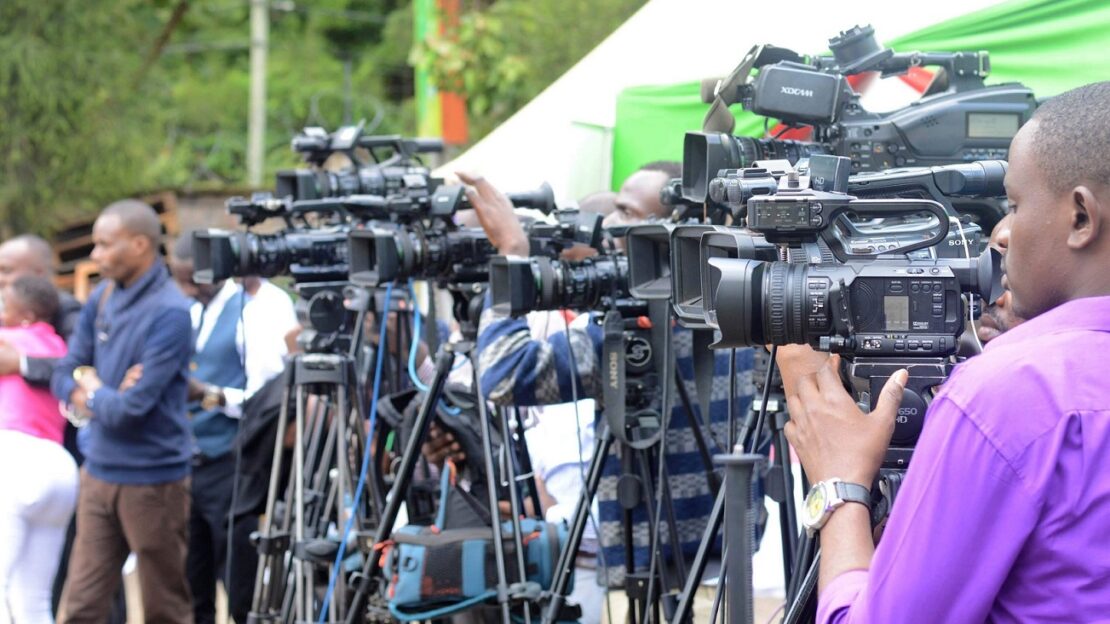
By Dinnah Ondari
Journalists face various challenges in the line of duty and current trends and statistics, sadly portray an environment that is increasingly becoming unsafe for scribes. The latest World Press Freedom index listed Kenya at position 102 out of 180 countries which is the lowest the country has ever been ranked in recent years.
Though there are many factors that are considered for such rankings to be arrived at, such as media ownership, the level of government censorship and restrictive laws, physical threats also significantly contribute to the prevailing situation.
The situation has worsened in the last one year where journalists who continue to work as frontline workers have been increasingly at risk of contracting COVID-19.
Available data from media houses shows that indeed over 300 journalists were among those who contracted the disease and while the levels of recovery was encouraging, some, unfortunately lost their staff to the pandemic. By being frontline workers, journalists are not only continuously at risk of contracting the disease at a personal level but pose a risk to their families and those they closely interact with.
As a frontline worker, a journalist has to continually worry about their safety and the consequences in terms resources and social relationships. This has taken a psychological toll on these frontline soldiers. In addition to worrying about their health and that of their families, another 1200 journalists suffered from the adverse economic effects of the pandemic which included job losses and salary cuts. The fact that these cost cutting measures impacted on the mental health of the media workers cannot be overemphasized.
Away from Covid-19, journalists still face the traditional threats in the line of duty such as physical attacks, online trolling, and being exposed to disturbing scenes while covering sensitive stories that expose them to traumatic experiences. Such include covering gory scenes of crime, tragedies and even conflict zones, just to mention a few.
The Gaps
Based on the number of cases that the Council has handled in the last several months, it is emerging that psychological health is a major problem afflicting many members of the fourth estate. However unlike in physical threats where journalists come out to report the cases, there is evidence that many of them fear to admit that they are undergoing traumatic experiences due to the stigma attached to psychological health issues.
During the frequent forums that the Council holds on issues of safety and protection of journalists, many have admitted to holding on to troubling experiences due to fear of stigma by colleagues or society at large; this is because they feel that admitting to needing help to overcome difficult psychological issues would be interpreted to mean that that one is mad and may lead to one being declared to be unfit by their employers.
This calls for the highest level of confidentiality when addressing such issues, which is why media owners and managers need to not only support but also proactively make it known to their staff that help will be readily available if and when they needed it.
To be fully productive in their work, human beings need to be in their perfect health physically, psychological and emotionally; journalists are not an exception. While the Council has been and will continue to be available to offer assistance to those that need help, the ideal situation would be that media managers and editors are the first port of call when it comes safety issues due to their close interaction which facilitates ease in flagging out challenges among their staff and therefore avail help in a timely manner.
While not many reporters and correspondents have access to medical insurance that can enable them to confidentially seek trauma counselling, media houses can set aside budgets for external counsellors that are available round the clock for consultation.
On its part the Council has mainstreamed psychological health among its interventions on safety and protection of journalists as a way of responding to the emerging trend on the issue.
Dinnah Ondari is Manager, Press Freedom, Safety and Advocacy – Media Council of Kenya